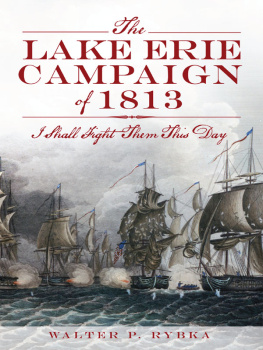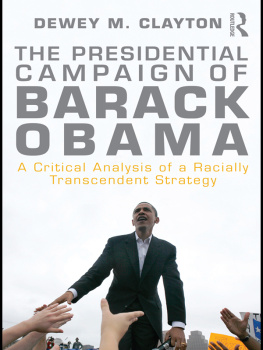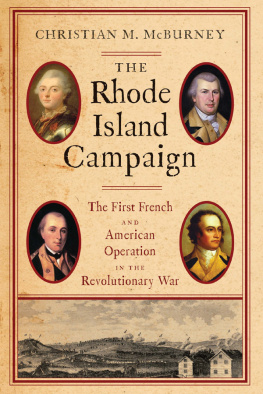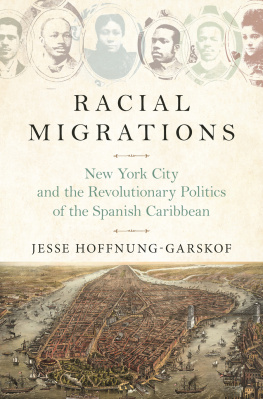
This edition is published by PICKLE PARTNERS PUBLISHINGwww.picklepartnerspublishing.com
To join our mailing list for new titles or for issues with our books picklepublishing@gmail.com
Or on Facebook
Text originally published in 2005 under the same title.
Pickle Partners Publishing 2015, all rights reserved. No part of this publication may be reproduced, stored in a retrieval system or transmitted by any means, electrical, mechanical or otherwise without the written permission of the copyright holder.
Publishers Note
Although in most cases we have retained the Authors original spelling and grammar to authentically reproduce the work of the Author and the original intent of such material, some additional notes and clarifications have been added for the modern readers benefit.
We have also made every effort to include all maps and illustrations of the original edition the limitations of formatting do not allow of including larger maps, we will upload as many of these maps as possible.
THE FAILURE OF BRITISH STRATEGY DURING THE SOUTHERN CAMPAIGN OF THE AMERICAN REVOLUTIONARY WAR, 1780-81
By
MAJ Jesse T. Pearson
TABLE OF CONTENTS
Contents
TABLE OF CONTENTS
REQUEST FROM THE PUBLISHER
ABSTRACT
This paper investigates the failure of British strategy during the southern campaign of the American Revolutionary War from 1780 to 1781. Following Frances entry into the war in 1778, the British Secretary of State for the American Department, Lord George Germain, believed that Great Britain could expand the war into the south with minimal cost. This research traces Lord Germains strategy from its origin in London in 1778 to its application in the American south by British Generals Henry Clinton and Charles Cornwallis during 1780 and 1781. It also analyzes crucial British engagements with the southern patriot army at the Battle of Cowpens in January 1781, the Battle of Guilford Courthouse in March 1781, and the final withdrawal of British forces from the southern interior following the Battle of Eutaw Springs in September 1781. This research identifies four factors that contributed to the failure of British strategy in the south: (1) a false British assumption of loyalist support among the populace, (2) British application of self-defeating political and military policies, (3) the British failure to deploy sufficient forces to control the territory, and (4) patriot General Nathanael Greenes campaign against British forces.
ACKNOWLEDGMENTS
I would like to thank the members of my committee for their direction and encouragement. Dr. Richard Barbuto provided outstanding professional guidance and mentorship as the committee chairman. Dr. Michael Pearlman shared his extensive knowledge of 18th-century American history and provided valuable critical analysis. Captain (Retired) Roy Merrill, USN graciously agreed to serve as a committee member with little advance notice. Dr. Joseph Fischer provided expert guidance on primary sources relating to the British government and the ministry of Lord Frederick North. Lieutenant Colonel (Retired) Douglas Stephensen provided valuable feedback on structure and organization. I am deeply grateful for the time and attention that these scholars have devoted to this project. I would also like to thank Ms. Helen Davis, Program Advisor for the Director of Graduate Degree Programs, for her technical expertise, generosity, and kindness.
ILLUSTRATIONS
Figure 1. War of Maneuver in the Carolinas
Figure 2. The Battle of Cowpens
Figure 3. The Battle of Guilford Courthouse 100
CHAPTER 1 INTRODUCTION
This paper investigates the failure of British strategy in the American south from 1780 to 1781. The thesis of this research is that this failure was due to four factors: (1) a false British assumption of loyalist support among the local populace, (2) British application of self-defeating political and military policies, (3) the British failure to deploy sufficient forces to control the territory, and (4) patriot General Nathanael Greenes campaign against British forces. The chapters that follow examine each of these factors in detail.
In March 1778, King George III was eager to find a solution to what had become a political and military quagmire with the war in America. He established the Carlisle Peace Commission and dispatched the body to New York City with a proposal to cease hostilities. The American government insisted that the king and the British government agree to recognize American independence. The commission refused to make this concession and both parties recognized that they had arrived at an impasse.
Faced with this intractable problem, British Prime Minister Lord Frederick North came under intense political pressure to achieve a military breakthrough. The Secretary of State for the American Department, Lord George Germain, was the official directly responsible to the government for British performance in the war. After Carlisles failure, Germain wrote that the opposition Whig Party in Parliament might make it almost impossible to the present Ministry to remain in office. {1} Therefore, he worked fervently to develop a new strategy to demonstrate to the Parliament and king that victory was still attainable. Germain came to believe that southern loyalists were prepared to rise up in great numbers to defeat the rebels if British troops provided them protection. To acquire a sufficient number of troops to protect the loyalists, Germain used traditional recruiting techniques such as hiring mercenaries from the state of Hesse-Cassel, impressing criminals convicted by the courts, and offering bounties to volunteers.
On 8 March 1778, Germain sent a letter to General Henry Clinton, commander in chief of all British forces in North America, declaring that conquering the southern states of Georgia, South Carolina, and North Carolina was absolutely essential. Germain wrote that this was considered by the King as an object of great importance in the scale of the war. {2} He believed that Great Britain should isolate the active center of the American rebellion in New England by invading the south. This would damage the rebels economic base by depriving them of the revenue they generated by exporting southern crops such as rice, indigo, and tobacco. The American government used the funds from these crops to purchase war stocks and equipment from Europe. Germain gave Clinton broad latitude in planning the invasion of the south. He wrote, Your own knowledge of those provinces, and the information you can collect from the naval and military officers that have been upon service there, will enable you to give the officer to whom you may entrust the command better instructions than I can pretend to point out to you at this distance. {3}
On 12 May 1780, patriot General Benjamin Lincoln surrendered his entire 5,500- man army to Clinton at Charleston, South Carolina in the greatest American disaster of the war. Three months later, General Charles Cornwallis and his 2,200-man army won a crushing victory over General Horatio Gates and his 4,100 American troops at the Battle of Camden, South Carolina. The British killed or wounded 800 of Gatess soldiers and captured 1,000. The remnants of the American army fled north to Charlotte and Hillsborough, North Carolina in disarray. It appeared that the British had solidified their position of complete dominance over the south.











